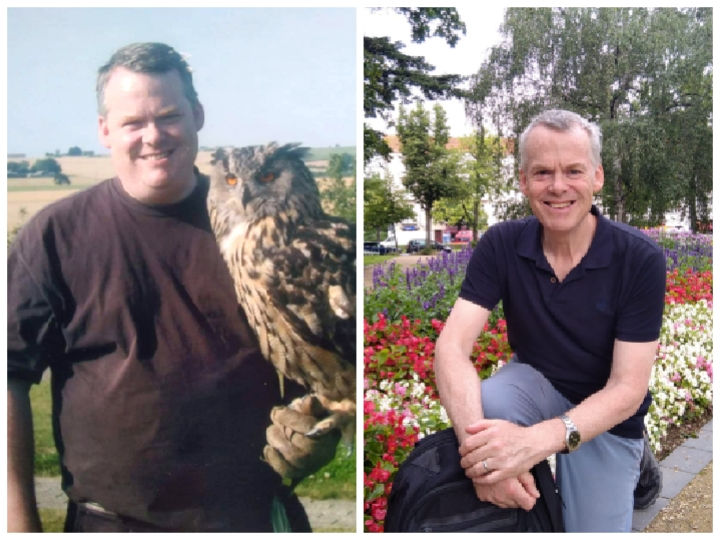Plant Based Meat Alternatives...Yes/No/Maybe?
- Henry & Henry

- Jul 27, 2022
- 5 min read
Updated: Jul 28, 2022
Anyone reading this blog post will surely attest to the fact that plant based alternatives to meat and meat products can now be found virtually everywhere. It’s remarkable how quickly the landscape has changed, as increasing numbers of food producers respond to evolving consumer preferences and look to gain a foothold in this lucrative new market. Considering the buzz surrounding this revolution in animal-free food products, perhaps it’s not surprising that the plant based meat market is expected to continue to grow at an exceptional rate over the next few years. The Vegan Society, in a report about meat alternatives, states that in 2019, the global market for these products was valued at $4.5 billion and is anticipated to reach $7.1 billion by 2025. Europe’s and North America’s share of this market alone is estimated to be 70%.

So what is driving this growth?
Much of the growth is due to consumers making more ethical choices about what they eat, and in particular reducing the amount of meat they eat. Undoubtedly, the number one consideration influencing the trend away from animal meat is concern for the environment and the desire to do something to reduce one’s carbon footprint as the world begins to experience the effects of climate breakdown. The message about the excessive and unsustainable water and land use that animal farming inflicts, combined with the negative impact it has on vital ecosystems and biodiversity, has begun to percolate down to the wider society, and is nudging people to ‘do their bit’, even if it is in small steps. Now, even for the dedicated meat eaters, the possibility that an alternative food might exist that still delivers on some of the taste and texture they relish, is becoming a reality.
Veganism is another driver, especially amongst the younger generations, as awareness of and concern for the needless slaughter and exploitation of animals is increasing and leading people to eliminate all traces of what was once a living creature from their plate. The annual Veganuary campaign, which challenges people to go meat, egg and dairy-free for the whole of January, has been a huge success and has resulted in increased visibility of the vegan movement. Since Veganuary launched in 2014, millions of people from countries all over the world have participated and in 2022, more than 620,000 took the pledge to try a vegan diet.
The other driver is of course health, a key reason many people switch to meat-free diets per se. Annette and I (see bio) were motivated to change our diets and exclude first dairy, then meat and ultimately all animal products from our diet for reasons of health. It paid dividends for us, as we were both able to resolve our respective health conditions as a result of these changes - in Annette’s case endometriosis and subsequently chronic fatigue, and in my case obesity and hypertension. There is now an abundance of robust peer-reviewed research supporting the health benefits that are to be reaped when eliminating animal foods, and especially red meat and processed meat products, from the diet. We have followed and digested a good deal of this research, and it ultimately made complete sense to us. It’s also something that is endorsed by pillars of the medical world and key government agencies. The following is a quote from a recent WHO report:
“Foods associated with the greatest negative environmental impacts – unprocessed and processed red meat – are consistently associated with the largest increases in disease risk.”(1)
Helping to make the switch
As I have already mentioned above, plant based meat alternatives can help to encourage people to try out different foods from those they are accustomed to eating. We are all aware how difficult it can be to change long-held habits. So anything that makes it easier to adopt a diet that is kinder to the planet and the creatures that inhabit it (including human beings!) should be applauded. Indeed, things have progressed since the days of bland and visually unappealing meat alternatives on offer up until a few years ago. The food industry has got its act together in responding to changing customer demand and has invested huge sums in product development and marketing campaigns in order to compete for our taste buds.
But this also comes with a downside. Many of the companies that are now innovating and leading the way with new plant based meat options are using some of the same tactics to lure the consumer as those that have proven so successful to get us hooked on ultra processed foods generally. And so, in order to create maximum palatability and appeal of these new alternative foods, so that we stay hooked, they add fat, salt, taste enhancers, and additives, all the while trying to outcompete the other brands in the marketplace. This often comes at a price, namely the nutritional value of these foods. Whilst they may contain comparable levels of protein to those found in meat, they often contain unhealthy levels of salt and saturated fat, and in some cases, even sugar. This can be detrimental to health if eaten in excess, and so, in my view, it’s important that consumers recognise that eating these foods regularly isn’t a passport to good health, even though they are plant based.
Everyone has to start their journey somewhere, and if plant based meats make it possible to remove animal foods and thereby contribute to a more compassionate and conscious world, then there’s a lot to recommend them. But perhaps it’s even better to consider these as just the starting point on a journey that ultimately ends up at a destination where everything we eat is made from whole foods. I’ve been on this journey and decided to stay here. I love how it feels and I see no reason to travel back. So don’t give up hope that one day this might also seem like the natural thing to do for you too.
An important final consideration which I believe is highly relevant to this whole subject is the sustainability of a way of eating. Those who choose to become plant based or vegan generally do so because they truly care and believe strongly in the ethical reasons for doing so. Maintaining optimum health through good nutrition enables this not only to be a sustainable lifestyle choice, but it also enables those doing it to be the best possible ambassadors for their cause. Vibrant health can be a powerful advert for a plant based diet. Not only does it prevent those who look to denigrate this dietary choice from doing so, it also helps as a beacon to others to join the movement.
Graham Henry
(1) Plant-based diets and their impact on health, sustainability and the environment: a review of the evidence: WHO European Office for the Prevention and Control of Noncommunicable Diseases. Copenhagen: WHO Regional Office for Europe; 2021. Licence: CC BY-NC-SA 3.0 IGO.



)_20230830_134131_0000.png)



Lovely article, you write so well Graham, thank you!! Unhealthy as some meat substitutes are, it's definitely better than unhealthy processed products for which an animal had to die. My hope is that those who choose veganism (for the animals) or plantbased (for health) will all end up in the same place, realising that eating whole foods should be the norm, with occasional plantbased processed "junk food" (burgers, nice cream etc) not doing too much harm.
Thinking of processed food vegan meat for me is not an alternative. I can cook tasty meals from regional products grown by eco farmers without the wish of having a meat surrogate.